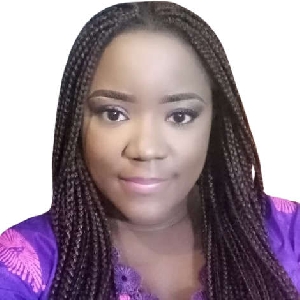
Following the report of Nigerian students being stranded abroad due to delayed payment of their stipends, one of the 2016 beneficiaries of the Federal Scholarship Board, Patrick Amechi, who graduated from St. Petersburg Electrotechnical University in Russia, narrated his ordeal.
Mr. Amechi said during his time, his set members had to pay for their flight tickets before the Federal Scholarship Board could reimburse them. He also stated that FBS did not send students to their various schools in time, resulting in drawbacks and poor performances for some people. He decried the disruption of their $500 monthly stipend, which left them stranded. He noted that they were eventually paid the cumulative sum of the end of their stay in Russia.
Speaking on broader challenges, Mr. Amechi emphasized the language barrier and extreme weather conditions, reaching -40 degrees Celsius, as additional hurdles faced by Nigerian students in Russia. He called on the federal government to streamline efficiency in mobilizing students and prompt stipend disbursements. He equally advocated for English-taught courses in Russia to ease academic transitions.
In a separate interview, an educator, Ikechi Nwogu, discussed systemic issues affecting federal and state government scholarships in Nigeria. Mr. Nwogu, whose organization, in collaboration with the Sustainable Development Agency in River State, managed the scholarship scheme in River State from 2008 to 2011, tells correspondent Ifechukwu Muonyili that politicians’ biases and differing leadership perspectives often compromise scholarship objectives. Dr Nwogu pointed to instances during Amaechi's and Goodluck Jonathan's administrations where political interference hindered scholarship schemes' effectiveness. He spoke on how vital it is to put structures in place to help smoothly navigate the scholarship process. ‘But when that is not defined, you discover it could be an issue, and anyone could over politicize issues’.
Regarding the funding of scholarship projects, Dr Nwogu commended the proactive approach of the administrator of the Sustainable Development Agency in River State. He said the administrator's strategy of upfront payment for beneficiaries' scholarships ensured continuity and prevented students from being stranded due to government transitions. ‘I asked him why he did that, he said because he knows how the Nigerian system works. One government comes in and leaves students stranded. If the government approves this is good, then let’s pay for everything so nobody gets stranded. It was a wise move. Dr. Nwogu also said some politicians resorted to mounting pressure on them and even threatened to sack members of his organization if their bidding is not done. ‘politicians for the most part are spoilers to novel schemes. A lot of them are self-centered—not all. Sometimes they come in the way of the good objectives of the leadership. One particular one called me and asked, “Is there no way you can ‘mago mago’ the system?”. Those were his words. I said, “Sorry sir, we can’t do that. We must maintain utmost transparency”.’
However, Nwogu lamented the demise of scholarship schemes due to political power struggles between political parties, resulting in the abandonment of vital educational initiatives. ‘The political interplay between two political divides for which one says– look, I cannot sponsor this…I am not paying for this anymore. Oh let this panel be raised. Let’s investigate what is going on—At the end of the day, the scholarship scheme never saw the light of the day.’ Furthermore, Dr. Nwogu highlighted structural changes that negatively impacted scholarship schemes, such as delayed examination grading processes and reduced scholarship opportunities post-2015. He advised individuals seeking scholarships to seek guidance from advisory bodies to navigate the complex landscape of scholarship opportunities effectively.
These testimonies underscore the urgent need for reforms in Nigeria's scholarship programs, including streamlined administration, transparent funding mechanisms, and reduced political interference, to ensure equitable access to quality education for all deserving students.


